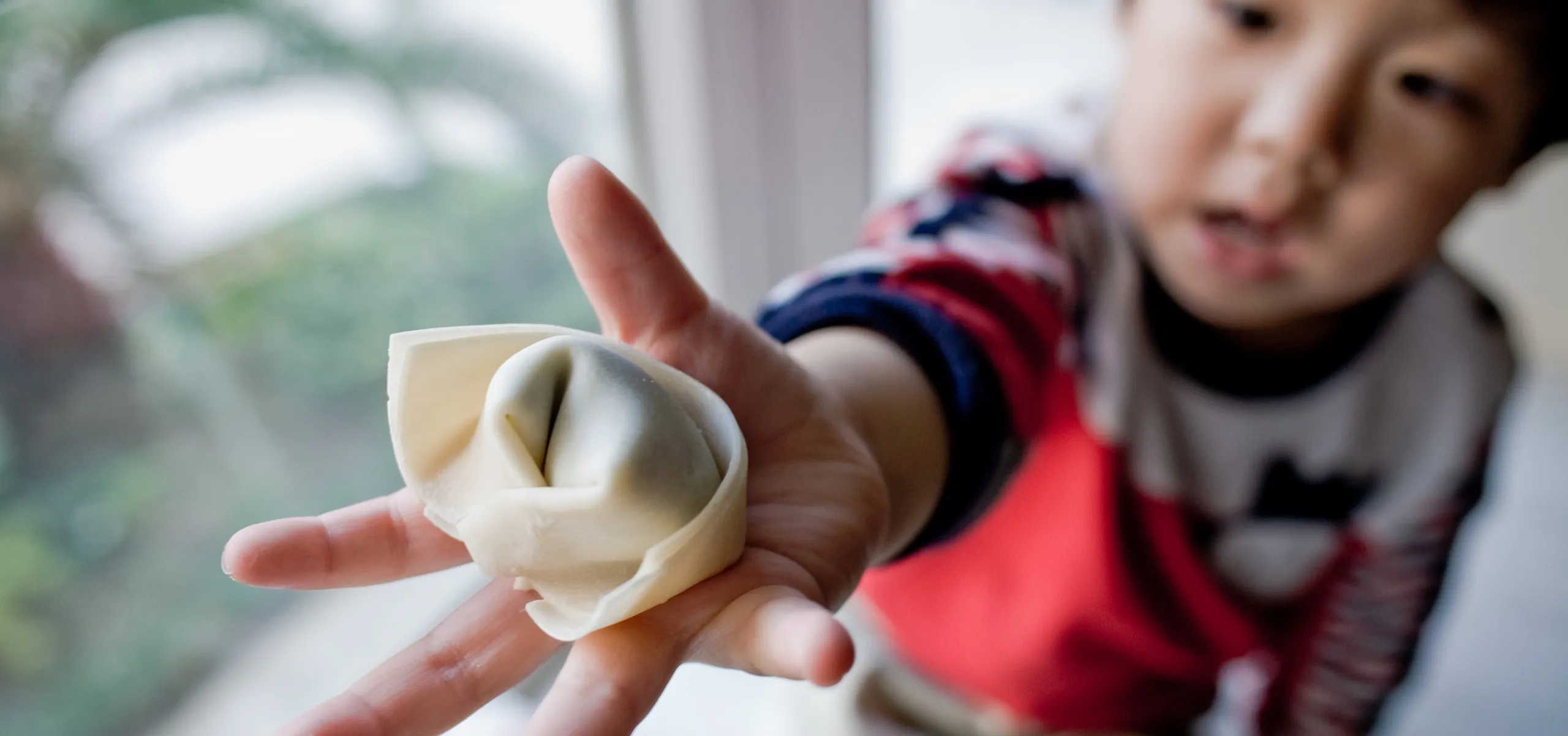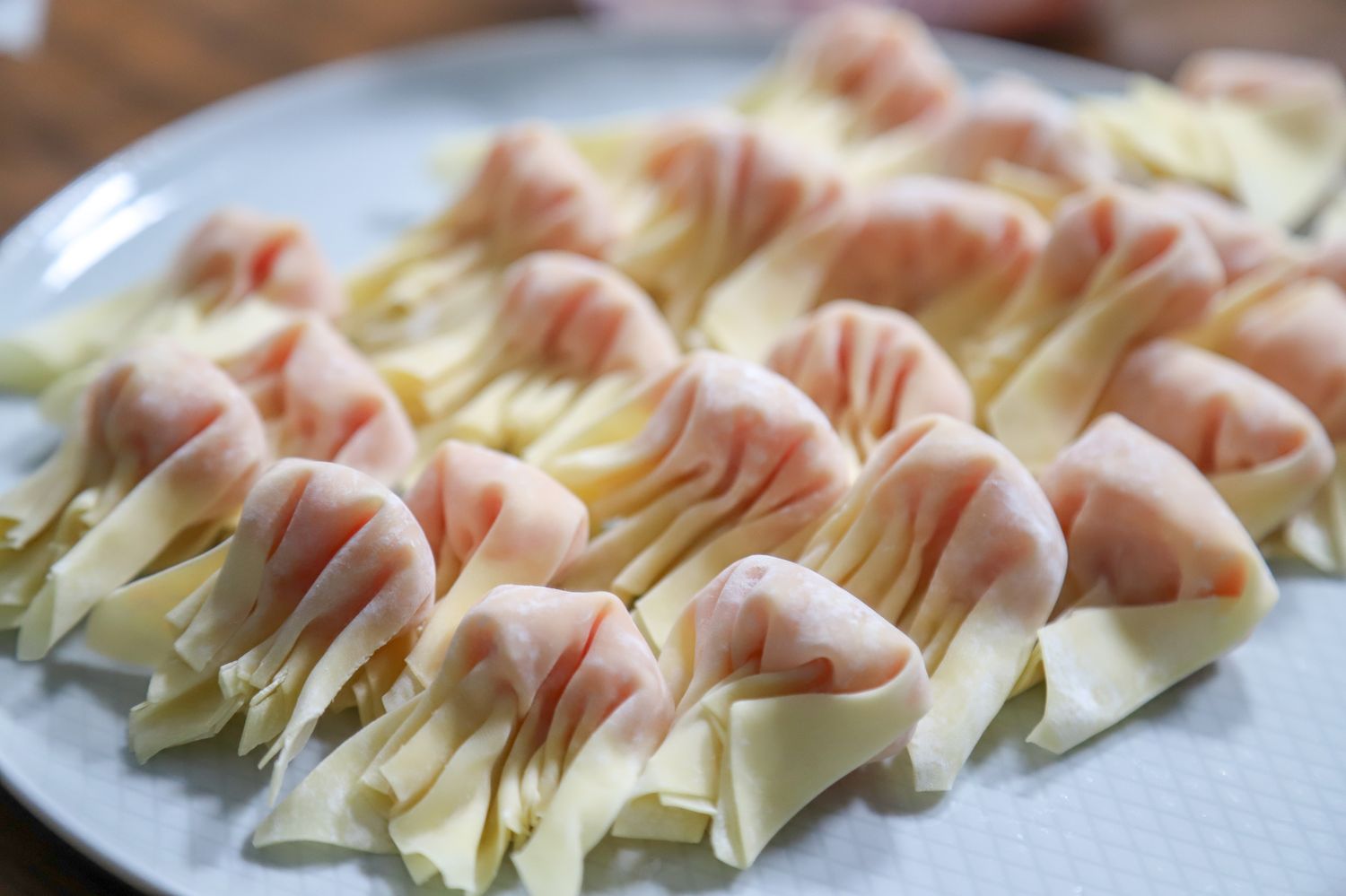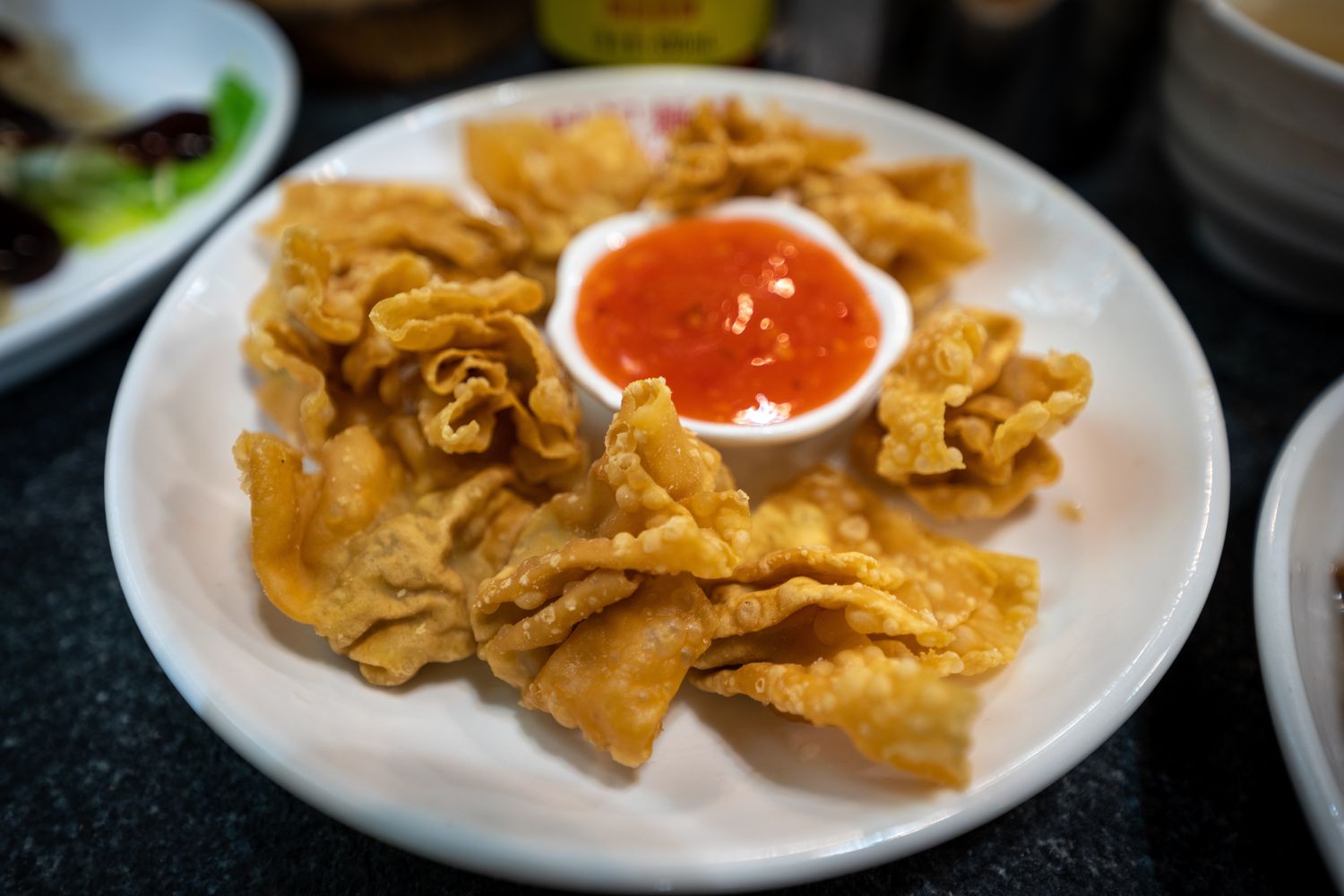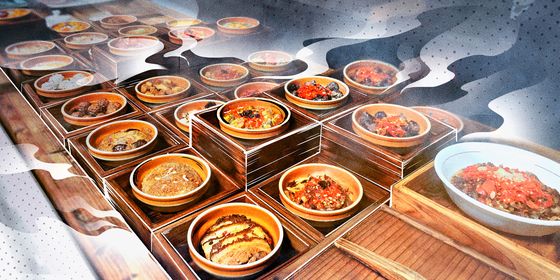Wonton varieties differ from region to region—explore the wanton world of the famous Chinese snack
In the autobiography Six Records of a Floating Life (《浮生六记》) written by Shen Fu in the Qing dynasty (1616 – 1911), he shares lovely memories of his wife Yun Niang. Yun is full of fresh ideas, from pouring tea into lotus buds to absorb the fragrance, to picking moss-covered rocks to create a rock garden at home. When Shen plans a spring outing with his friends, Yun suggests bringing along a wonton seller so he could supply them with tasty wontons while on the road.
While wontons seem like a simple, unassuming snack, they have a surprising association with something much grander: the universe. In A Record of Food (《食物志》) from around the 5th century, wonton was initially written as hundun (浑沌, “chaos in the universe”). According to Daoist legend, the universe used to be in chaos, with the sky wrapping around the earth—just like square-shaped wonton skin wraps the round fillings. The giant primordial being Pangu breaks the sky and earth, turning its body into mountains and rivers and creating the planet in the process according to Chinese mythology.
Though not quite as mysterious, the world of wontons is still quite intriguing today, as different regions in China prepare different varieties of the snack. In hot and spicy Chengdu, Sichuan province, pork wontons bathe in a red chili soup (红油抄手). In coastal Guangzhou, Guangdong province, shrimp-stuffed wontons dip in a clear flatfish soup (鲜虾云吞).
Cantonese people often stir fry wontons (炸云吞) and add elastic noodles into wonton soup (云吞面). In the movie In The Mood for Love (《花样年华》, 2000), romance grows among two strangers sharing wonton noodles on a drizzly evening.
In Suzhou, Jiangsu province, locals love to go for morning tea at old teahouses and have a bowl of bubble wontons (泡泡馄饨) to start the day. As the wonton skin is as thin as cicada wings, the wontons float in the soup and tend to burst in the mouth like little bubbles.
In spring, people in Suzhou add fresh water chestnuts into their wontons (荸荠馄饨). According to folklore, in ancient times eight fairies passed by Suzhou, and they accidentally dropped eight treasures into its lake. The treasures gradually grew into eight unique water plants, one of which is the water chestnut, a particularly sweet and juicy treat.
In Qingdao, Shandong province, wontons have become a late-night comfort food. As the word “night (夜)” sounds similar to “wild (野)” in Chinese, these wontons are called “wild wontons (野馄饨),” resonating with the free spirit of people in Qingdao who like to sit outside and chomp down on grilled squids, garlic oysters, and the draft beer the city is famous for. As the seafood barbecue feast is winding down, a warm bowl of wontons can be a soft and light final course for the night.
From Wenzhou to Taizhou and Ningbo in Zhejiang province, hawkers used to carry wontons on a bamboo shoulder pole (扁担馄饨) in the old days. The shoulder pole had a burning firewood stove on one side and ready-to-cook wontons on the other, but since the 1980s, many hawkers have transitioned to more convenient mobile wonton carts (馄饨车). They often announce themselves with a “du du” sound using bamboo clappers to attract customers.
Watching the hawker skillfully and swiftly make wontons on the spot can be somewhat of a street art experience. The wontons “bathe” in boiling water for a minute before being poured into a bowl. Minced pork can be spread on top, then some seaweed, shrimp, and pickled mustard stems are added as a finishing touch.
Because of the bamboo clapper sound, some use the name “du du wonton (笃笃馄饨).” While it is increasingly difficult to find such traditional wonton sellers nowadays, the bamboo clapper sound still lingers in the minds of many people relishing in their childhood memories.
















